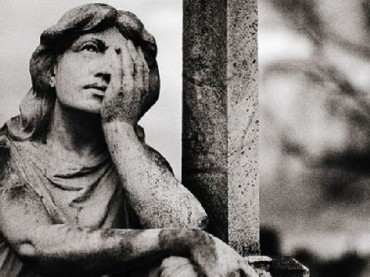
OPINION
I recall a very striking – and very telling – incident from my time as a student senator for Loyola University Chicago.
It’s a tale that exposes the hypocrisy that plagues many Catholic institutions, and the troubling trend in which Catholic universities are all too often Catholic in name only.
Last spring, our Unified Student Government Association passed a resolution titled “The Undocumented Student Act” that called for administrators to “support the presence and integration of” and provide financial aid and scholarships to students in the country illegally.
The university already had a policy of accepting and enrolling students in the country illegally, but this was meant to underscore it.
“The university administration should create a formal admissions process for undocumented students, complete with legal counseling, psychological support, and career advising,” the resolution stated. “Most, if not all, undocumented students live in constant fear of deportation, denying them the opportunity to develop their talents through co-curricular participation.”
It cited the Jesuit tenet Cura Personalis, which calls for the care of the entire human being, to make its case. During the debate on the resolution the banner of social justice was unfurled and waved proudly around. The bill passed 23 to 3, with 4 abstentions.
Inspired by this vote, I decided to tackle this issue of social justice on campus as well. As a senator at my Jesuit university, I too was in a position to write, propose, and vote on legislation.
I collaborated with my fellow senators, made compromises, and wrote a bill that secured the endorsements of two important subcommittees.
The following week I proposed the bill, titled “The Social Justice Clarification Amendment: To Provide a Definition of Social Justice for the Purposes of the Unified Student Government Association.”
It attempted to define what social justice was, exactly, for the purposes of the student government and the identity of our Catholic institution. It asked that The Compendium of the Social Doctrine of the Church, as well as any relevant document issued by the Jesuits, be used as a guiding document for future resolutions regarding social justice.
Ultimately the bill defined the term as “providing the conditions that allow associations or individuals to obtain what is their due, according to their nature and their vocation. Social justice is linked to the common good and the exercise of authority.”
Many senators scoffed at my legislation during the debate.
“By presenting a church doctrine in our legislation, I think this is sending the wrong message to our student body,” one student senator had said.
“We need to remember that there are (students) on this campus whose values do not align with the Catholic social teachings,” chimed another.
In the end, it failed. The final vote was 19 to 9, with 2 abstentions.
Their objections about the Catholic identity of the bill were telling coming from students leaders at a Catholic university – especially when they claimed the term for themselves just two weeks prior. But failure is nonetheless bound to happen when Leftism and political correctness trump the historical underpinnings and spiritual authority of institutions like Loyola, the Jesuits, and the Catholic Church.
I brought this bill forward because if a word or term has no definition – if it is a phrase that, as some students suggested “everyone knows when they hear”- it can be crafted or manipulated to meet whatever end people want. And that is dangerous indeed.
College Fix contributor Dominic Lynch is a student at Loyola University Chicago.
Like The College Fix on Facebook / Follow us on Twitter
IMAGE: Jes/Flickr





Please join the conversation about our stories on Facebook, Twitter, Instagram, Reddit, MeWe, Rumble, Gab, Minds and Gettr.